Better Infrastructure. Brighter Future.
Texas Infrastructure Now is at the forefront of advocating for critical infrastructure investments across our great state. Our mission is to ensure the continued growth and prosperity of Texas by enhancing our roads, highways, bridges, water systems, energy grids, ports, airports, and broadband internet access across the state.
Since our inception, TIN have been instrumental in the passage of key propositions that have led to billions in infrastructure investments. In 2014, we helped pass Proposition 1, which allocated significant funding for road and bridge projects. In 2015, Proposition 7 followed, further bolstering transportation funding. More recently, in 2021, Proposition 2 was approved, authorizing additional tools for counties to build infrastructure projects.


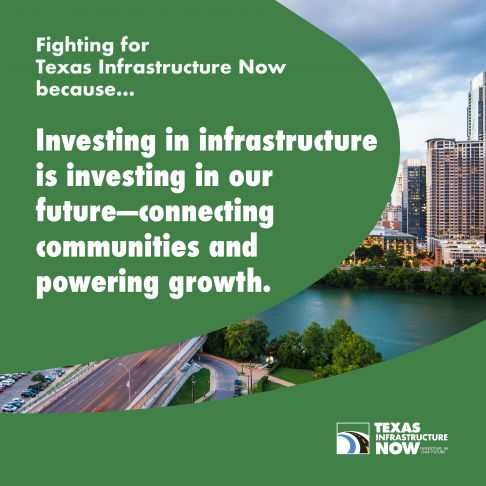
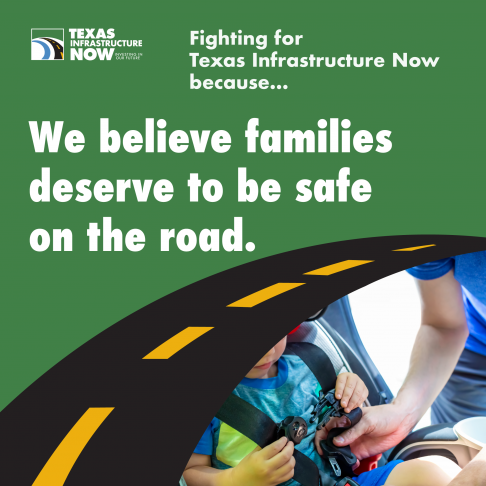






Texas Infrastructure Now
In 2019, Texas voters overwhelmingly approved Proposition 8, creating the Flood Infrastructure Fund, a critical step toward improving the state’s ability to mitigate and manage flooding. This fund has provided local communities with essential resources to build resilient infrastructure that protects families and businesses from future flood events.
In 2023, our advocacy efforts culminated in the passage of Propositions 6, 7, and 8. Proposition 6 established the Texas Water Fund, unlocking $1 billion for water infrastructure and supply projects. Proposition 7 focused on strengthening our energy grid, ensuring reliable power for a rapidly growing population. Proposition 8 provided substantial funding for expanding broadband access, particularly in rural areas.
As dedicated advocates and fighters for investing in Texas, we believe robust infrastructure is the backbone of a thriving economy and vibrant communities. Join us as we build a stronger, more resilient Texas for future generations.
THE FUTURE OF INFRASTRUCTURE
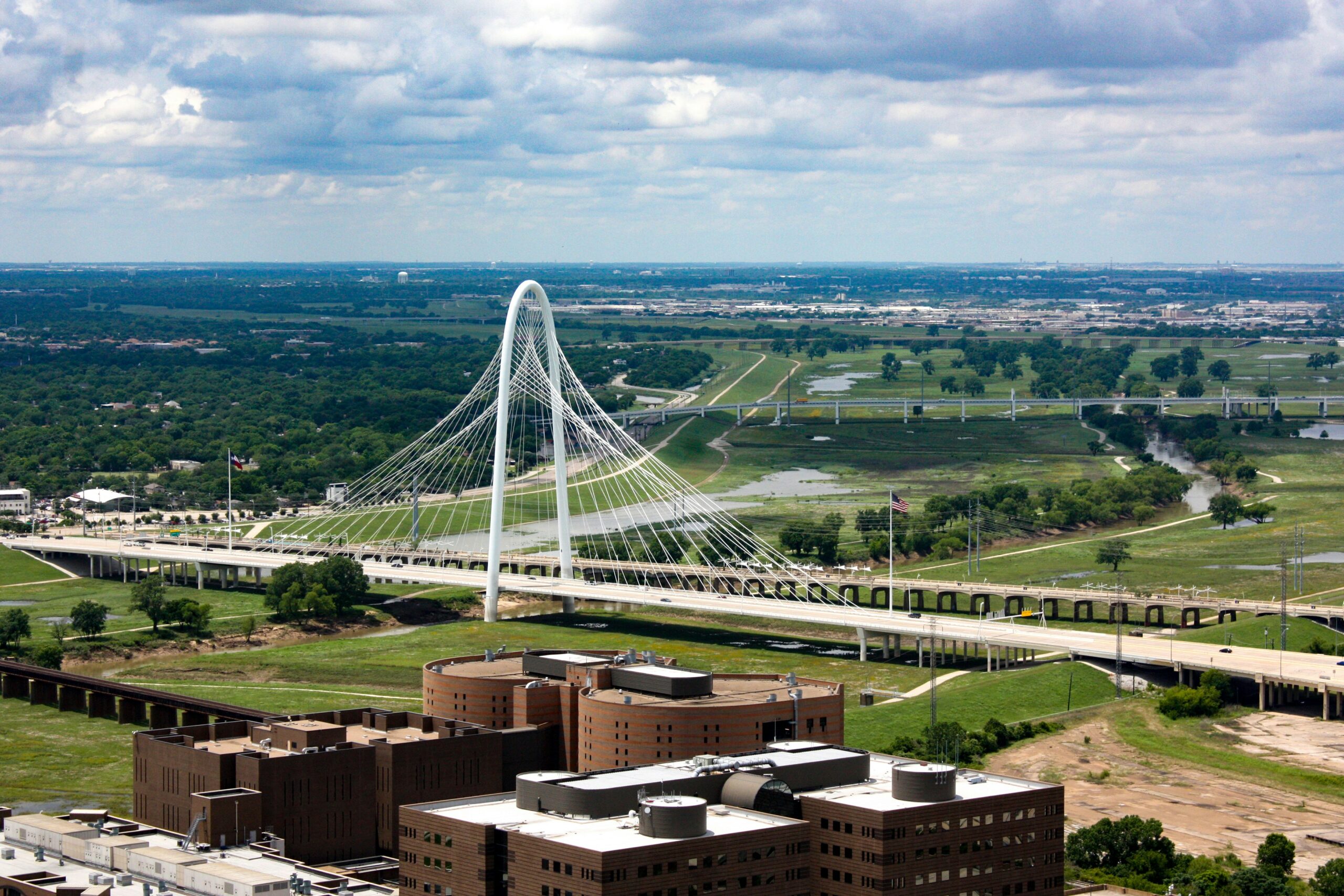
Roads and highways are the lifeblood of Texas’ economy, connecting communities and supporting commerce. With Texans driving almost 800 million miles daily, investing in our road infrastructure is essential to ensure safety and efficiency.

Water infrastructure is crucial for the health and prosperity of our state. As Texas continues to grow, maintaining and improving our water supply systems is vital to support our communities, agricultural needs, and the wellbeing of Texas families. As new residents pour into the state, they don’t bring additional water supply systems with them.
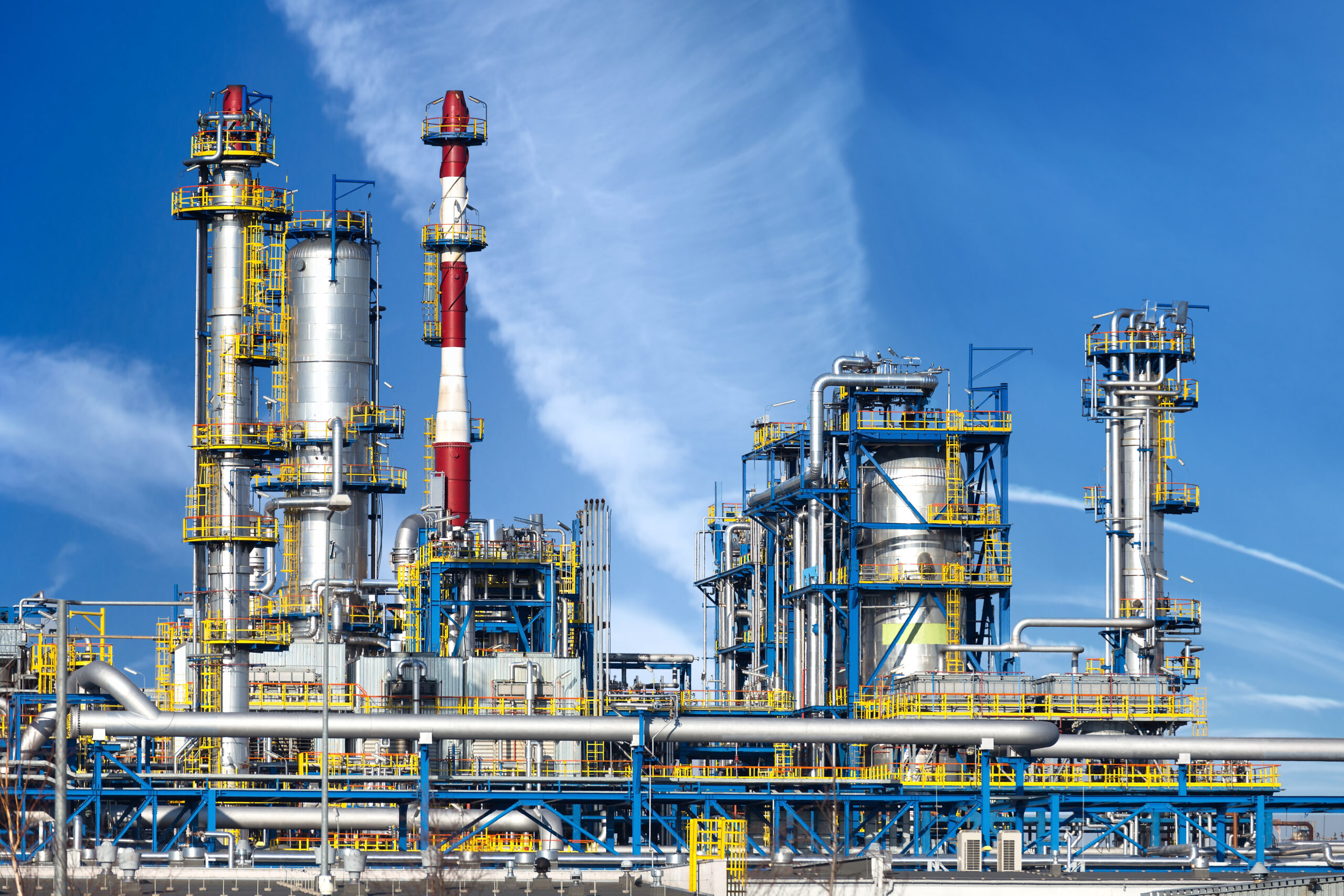
Reliable energy infrastructure is key to powering Texas homes and industries. Investments in energy projects ensure a stable grid and promote economic development across the state.

Texas ports are gateways to global trade, supporting thousands of jobs and driving economic growth. Modernizing port infrastructure boosts efficiency and competitiveness.
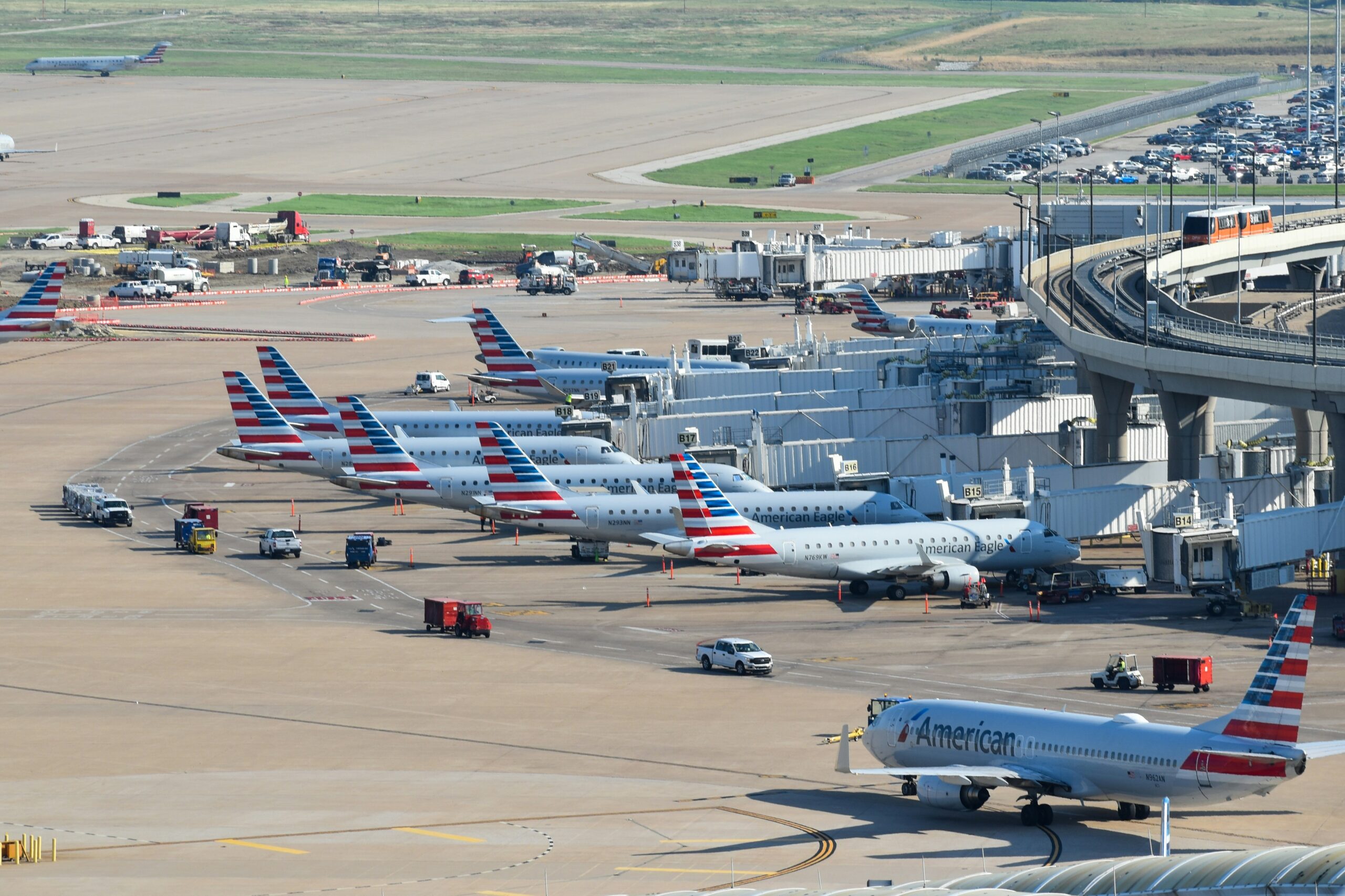
Airports connect Texas to the world, facilitating travel and commerce. Upgrading airport infrastructure enhances safety, efficiency, and the overall travel experience.
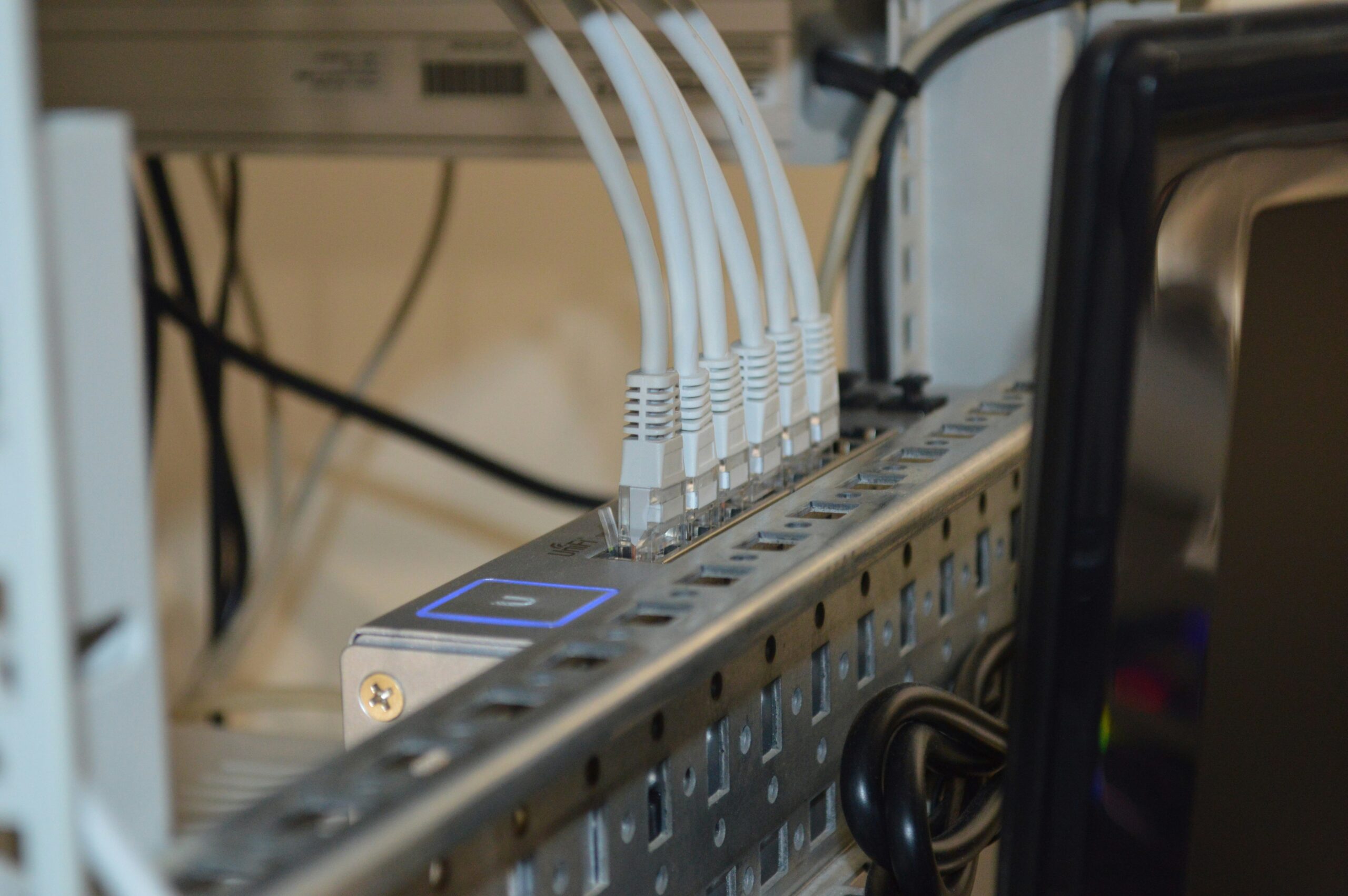
Broadband internet is essential for education, healthcare, and economic opportunities. Expanding broadband access ensures all Texans can participate in the digital economy.
MOVE OVER OR SLOW DOWN
“Move Over or Slow Down” is crucial for protecting roadside workers and emergency responders. Texas law requires drivers to move over a lane or slow down when approaching roadside law enforcement, emergency vehicles, tow trucks, utility vehicles, and TxDOT vehicles with flashing lights. Compliance with this law saves lives and keeps our roads safe. As Texas’ population grows, so does the number of vehicles on our roadways. Since first passing this law in 2003, the state legislature has extended the law’s protections to include TxDOT vehicles, tow trucks, and utility service vehicles to better protect Texans in worksites. By ensuring robust enforcement and public awareness of laws like Move Over or Slow Down, we can protect those who work to keep our citizens and roads safe.
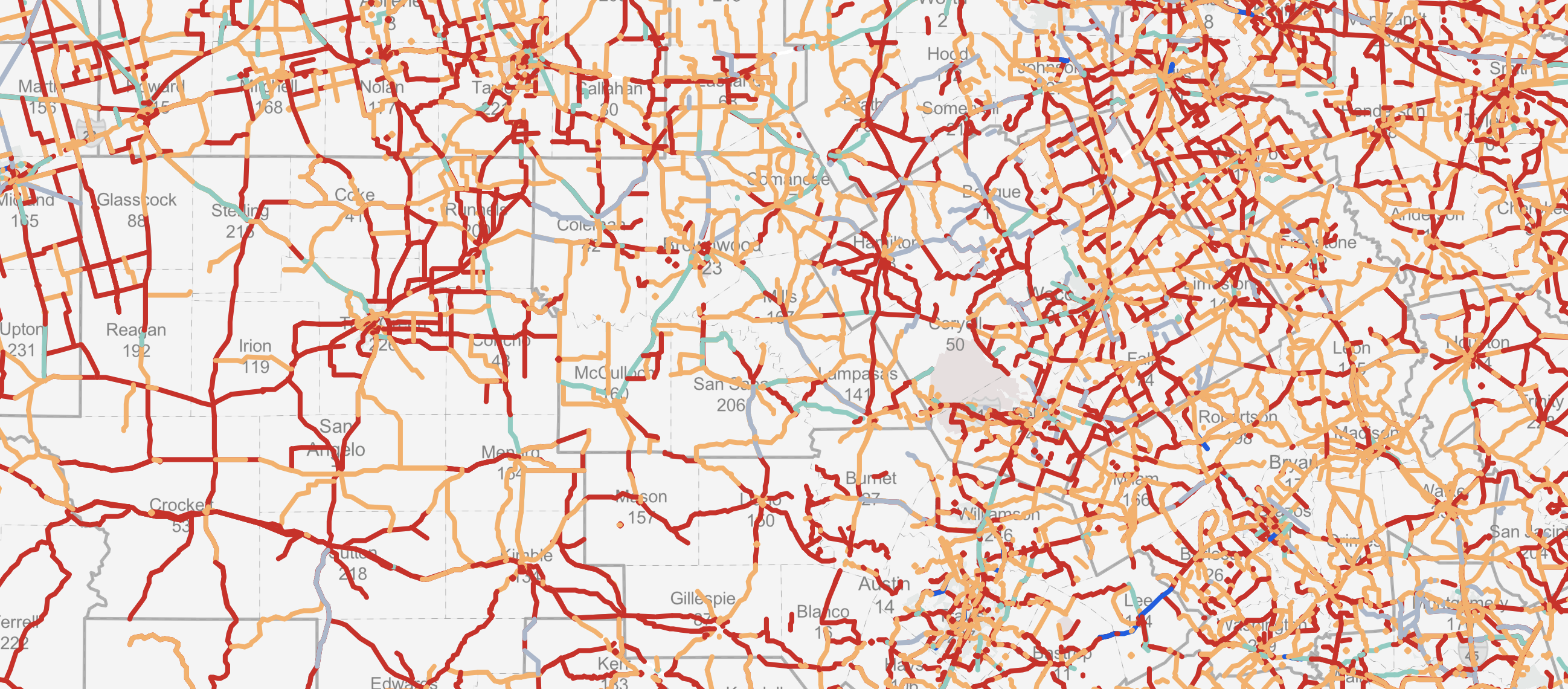
WHERE ARE WE WORKING?
Texas is continuously working on infrastructure projects to improve safety, reduce congestion, and support economic growth. Ongoing projects include highway expansions, bridge repairs, water system upgrades, port enhancements, and broadband expansions. These projects are essential for accommodating the rapid influx of new residents and ensuring that Texas’ infrastructure meets the needs of its growing population. Stay informed about the latest developments and see how we’re building a better Texas.
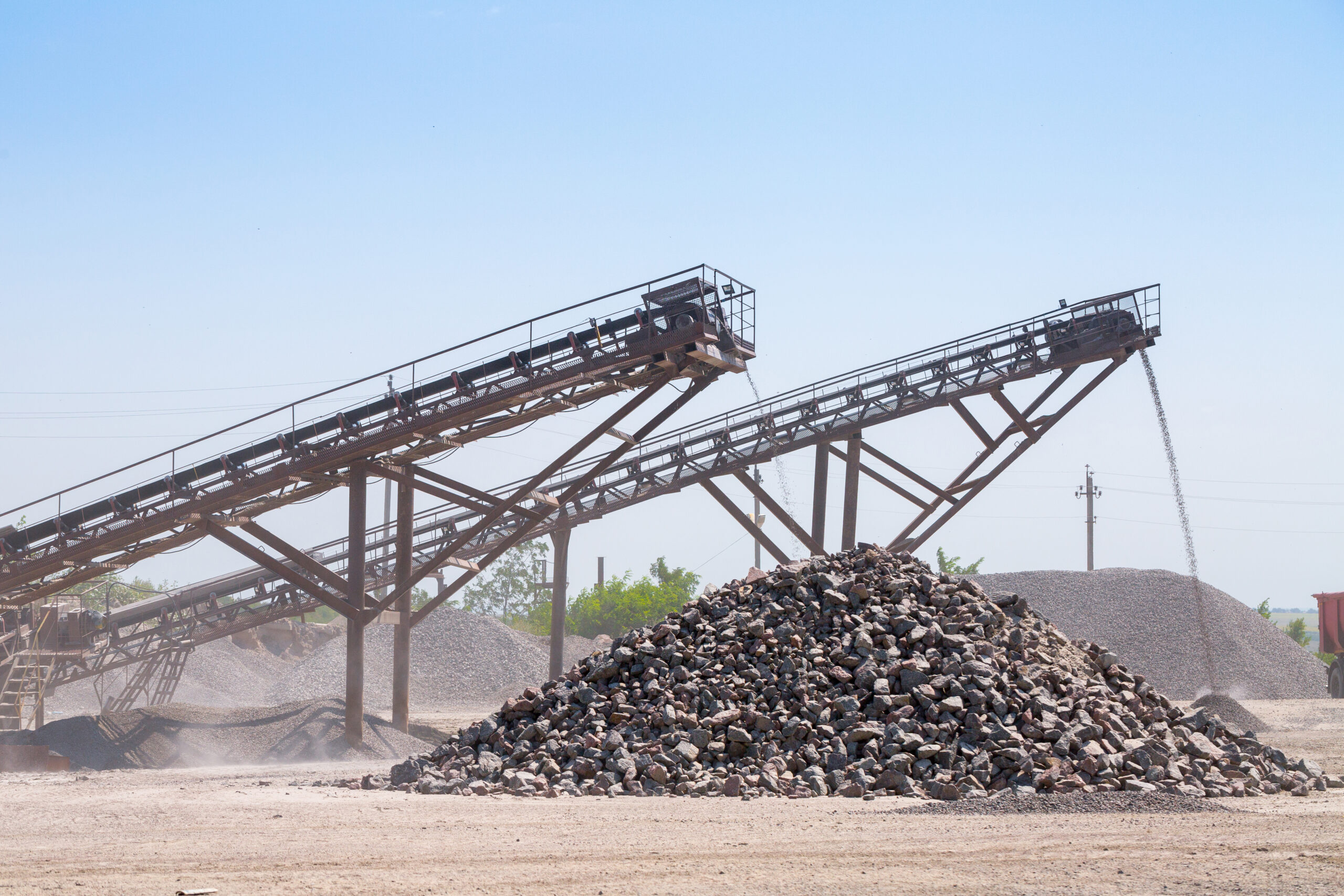
Building Texas together
The Role of
Aggregate Production.
We believe in sourcing essential materials right here in Texas, supporting jobs and infrastructure while keeping transportation costs low.
Join Us
Connect with Texas Infrastructure Now on social media to hear the latest news and sign up for updates about the state of infrastructure in Texas.